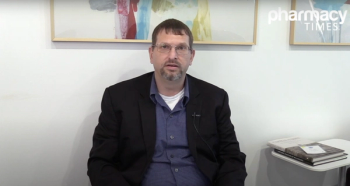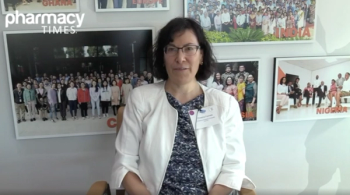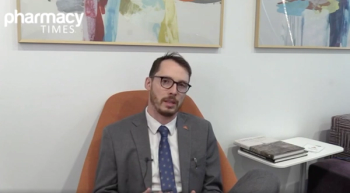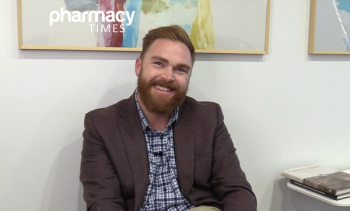
Pharmacists learn how protective purchasing impacts drug shortages and discover strategies to enhance supply chain visibility and patient access to essential medications.

Pharmacists learn how protective purchasing impacts drug shortages and discover strategies to enhance supply chain visibility and patient access to essential medications.

Pharmacists guide consumers in selecting quality dietary supplements, emphasizing the importance of USP verification for safety and efficacy.

Embedding standards in pharmacy practice help ensure medication quality, safety, and patient understanding.

Explore the evolving landscape of biological medicine, focusing on quality standards and innovations in cell and gene therapies for chronic diseases.

Drug shortages challenge US health care, driven by systemic issues like low pricing and manufacturing concentration, impacting patient care and safety.

Carrie Harney, JD, of US Pharmacopeia (USP) discusses how proposed tariffs could impact generic drug supply chains, sterile injectable shortages, and pharmacy operations, underscoring the need for policy incentives and manufacturing diversification.

Lab will help enable broader adoption of advanced manufacturing technologies and state-of-the-art quality solutions.

Mark Mulvahill, MBA, MSc, discusses the importance of microbial preservation and reference materials in pharmaceutical manufacturing and compounding pharmacies, highlighting their role in contamination control, regulatory compliance, and enhancing microbiological testing reliability.

USP provides health literacy standards and solutions that enhance medication safety and improve patient outcomes.

Farah Towfic, PharmD, MBA, RPh, explains the importance of USP's expert volunteer recruitment, particularly among pharmacists, to help create public quality standards, promote health literacy, and support initiatives, with applications open until March 13, 2025, for the next strategic cycle beginning July 1, 2025.

Farah Towfic, PharmD, MBA, RPh, discusses how US Pharmacopeia helped to strengthen supply chain resilience in 2024 through data-driven insights, policy advocacy, and pharmacist engagement to address prolonged drug shortages, particularly for generic sterile injectables.

The inaccurate claim that these products pose a heavy metal risk is potentially detrimental, as it could discourage pregnant women from using vital prenatal supplements.

Raymond Lorenz, PharmD, BCPP, discusses the role of pharmacists in bridging laboratory results and clinical practice, highlighting ongoing efforts to establish pharmacogenomic testing standards and foster multidisciplinary collaboration for broader clinical impact.

The workshop addressed trends, initiatives, and regulations for quality compounding.

Christine Formea, PharmD, MHI, BCPS, FCCP, FASHP, discusses the need for standardized pharmacogenomics education in pharmacy, highlighting opportunities for collaboration, professional growth, and integration of key competencies across curricula to advance the profession.

Blaine Groat, PharmD, discusses the evolution of US Pharmacopeia (USP)'s drug standards, highlighting new compounding guidelines, as well as USP’s commitment to pharmacogenomics and upcoming opportunities for experts to contribute to personalized medicine standards.

Stephanie Y. Crawford, PhD, MPH, highlights the expanded roles of pharmacists in clinical and non-clinical settings and their increased role in patient care, sharing personal experiences where pharmacists have been instrumental in supporting her family's health needs.

Sara Rogers, PharmD, discusses the formation and goals of the Standardizing Laboratory Practices in Pharmacogenomics (STRIPE) initiative, which seeks to standardize pharmacogenomic practices and improve clinical decision-making by establishing consensus across all stakeholders.

Ryan Nelson, PharmD, discusses the STRIPE Annual Meeting and Consensus Workshop’s focus on unifying pharmacogenetic guidelines across major organizations, such as the FDA, European Medicines Agency, Clinical Pharmacogenetics Implementation Consortium, and National Comprehensive Cancer Network.

Damage to a Baxter manufacturing plant in the aftermath of Hurricane Helene has led to significant IV fluid shortages throughout the country.

Benjamin Brown of Standardizing Laboratory Practices in Pharmacogenomics (STRIPE) discusses his own experience as a patient with cancer and how consensus around pharmacogenomic practices can improve the lives of patients.

New products will expand existing microbiology offerings and integrate new contamination control strategies.

In this interview for World Standards Week, Nakia Eldridge, PharmD, MPH, of US Pharmacopeia (USP), discusses USP's key achievements in 2024, while outlining the organization's 2025 goals.

The United States Pharmacopeia (USP) offers the industry’s most comprehensive auditing and testing program for dietary supplements with its USP Verified Mark.

Fouad Atouf, senior vice president of global biologics at US Pharmacopeia, discusses how established quality standards, drawing from the realm of small molecule drugs and evolving to meet the complexities of biologics, play a pivotal role in fostering trust.

Fouad Atouf, senior vice president of global biologics at US Pharmacopeia, discusses the importance of robust quality standards in addressing concerns regarding biosimilar safety and efficacy.

Naiffer Romero, MSc, MPH, discusses his work at U.S. Pharmacopeia to regulate nitrosamine impurities and ensure medication quality.

Following this year’s Match Day on March 15, pharmacists at US Pharmacopeia (USP) explain some of the opportunities student pharmacists can pursue outside of the traditional pharmacy career model.

Farah Towfic, PharmD, MBA, RPh, director, CEO Operations, US Pharmacopeia, discusses some of the primary topics impacting pharmacists’ delivery of care and quality this year.

USP executive notes importance of including different voices, perspectives for expansion of quality medicine.